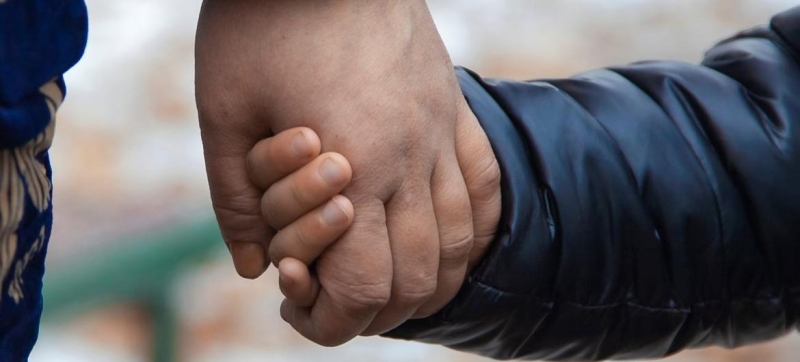
Repatriated children have to quickly adapt to the school curriculum and life in a new place. Repatriated children from Iraq to Kyrgyzstan: a new home and a new life Refugees and Migrants
In March 2021, the government of Kyrgyzstan, with the support of UNICEF and other partners, repatriated 79 Kyrgyz children from Iraq as part of the humanitarian mission “Meerim”, which means “Mercy”. Repatriation and reintegration activities were carried out as part of a program to support citizens of Central Asian states who returned from Syria and Iraq. The program is jointly funded by the European Union and the UN.
Adina Makhidilova (name changed) remembers the day her two nephews arrived in Jalal-Abad, located in southern Kyrgyzstan: “My nephews were very scared. They didn’t hug me or even hold my hand like my children did. I was very worried about their condition.”
Financial problems were added to Adina’s worries. She did not have her own home; she rented an apartment where she lived with her two children. Now she also had to look after two nephews.
“UNICEF helped us,” says Adina. “The foundation gave us money to buy the most necessary things, such as clothes, shoes and stationery for school.”
Two boys had to quickly adapt to the school curriculum and life in a new place.
“I decided to accept them for training,” recalls the head teacher of the elementary school, Zulfiya Kiyalbekova (name changed). “I simply could not leave my children without education.” Yes, it was not easy, but UNICEF came to the rescue. They conducted trainings and seminars for teachers, explained what problems we might encounter and how to solve them.”
There were many problems. In addition to the language barrier, there were also psychological difficulties. In front of one of the boys, his father and brother were killed by a bomb explosion. After what he saw, he stopped talking and smiling.
Haman could not read or write. Now he knows five letters and five numbers…
“Aman (name changed) could not read or write. Now he knows five letters and five numbers,” says teacher Feruza Abdulaeva (name and surname have been changed). “At first he was quiet and didn’t want to eat. UNICEF specialists came with training lectures, gave him books, and I started working. Now he can explain what he likes to eat and what he dreams of, and this is already a great achievement. But the main work is still ahead. Often I stay with him for individual lessons, we learn words and practice speaking in the Kyrgyz language.”
Read also:
“Return them home”: UN experts call for urgent repatriation of children from Syrian camps mute student.
“At the institute we were told that such children exist, but no one explained how they could be helped,” says class teacher Zukhra Yusupova (name changed). – Specialists from UNICEF began to teach us from scratch. They have gone through the process of integrating these children with us. It is difficult to introduce a child with disabilities into the classroom. It is even more difficult when he does not understand the language, when he was born and raised in another, very dangerous place. But we managed.”
According to Zukhra, such experiences are also beneficial for children because they learn tolerance and acquire communication skills with classmates who are different from them.
“Now, if a child with a disability or a different language background is brought into a class, I can help his teacher,” she says. “They taught me this, and now I can support others.”
Children have no place in camps and prisons
After the defeat of ISIS and the liberation of the territories captured by this organization in Iraq and Syrians, former fighters and their families, including many foreign nationals, have found themselves either in detention or in overcrowded camps in appalling conditions.
The UN has repeatedly emphasized at various levels that children held in Iraqi and Syrian prisons and camps are not criminals, but victims of terrorism, and in accordance with international law need special protection. Human rights activists called on all states to repatriate children from among their citizens and help them and their mothers with reintegration. Similar programs with the support of the UN are being successfully implemented in a number of Central Asian countries, including Kyrgyzstan.
